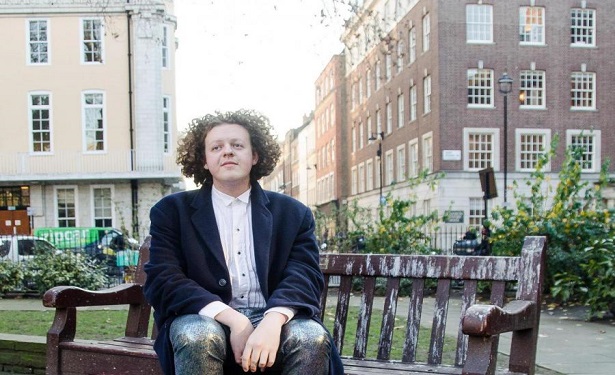Edinburgh Fringe Festival 2017:Brother Jack Rooke on why just talking about 'talking about mental health' isn't enough
Date: Sunday 06 Aug 2017
Comedian and activist Jack Rooke's latest Edinburgh Fringe show is a tribute to his best friend and a clarion call for real action around mental health
Rooke believes that as conversations about mental health have come more into the mainstream, government accountability has slipped away and the support people rely on is being slashed by cuts. Add “corporate alignments with mental wellbeing which never add up to actual support for those affected by mental illness,” and it feels like mental health has become a buzzword with actual solutions thin on the ground.
We’re told time and time again that we need to talk about mental health. But what if that’s become too easy to say? What if, sometimes, talking isn’t enough?
Comedian and activist Jack Rooke lost his close friend Olly to suicide two years ago: “a boy who was so loud and bold, and who I used to speak to a lot about mental health,” he says. “The hardest thing about losing him is that he knew he had people to talk to and we’d spoken about his depression. And it got me thinking, we need to do more than just talk about talking.”
It was this that made him want to base his latest Edinburgh Fringe show, Happy Hour, on moving the mental health conversation forward. It’s a ‘comedy-documentary-theatre show’, ‘a brotherly love letter’ to his friend, and it features music and films, as well as plenty of research on what we should actually do to fix mental health in this country.
Rooke has been an ambassador for male suicide prevention charity CALM for the last five years - it’s the biggest single killer of men under 45 - and he hopes his “weird and wonderful comedy show” will support them and push the agenda forward.
Happy Hour is performed at Underbelly Cowgate from today (August 3); it follows neatly on from Rooke’s previous work which has been concerned with grief and mental health. Good Grief, his acclaimed debut, was co-written with his grandmother about losing his dad to cancer when Rooke was just 15. Happy Man, his BBC documentary series about mental health, looked for new solutions to those facing mental health issues - from cold water swimming to naked life drawing.
“I like to create comedies about subjects that people struggle with, and I think it comes from being part of a working-class family where humour is always what’s got us through tough times,” Rooke says. “But when you work with a broadcaster like BBC Three, you can’t be at all political, and right now I firmly believe that politics is a massive part of why we have a horrendous mental health crisis in this country and I don’t buy a lot of the government’s pledges to solve it.”
That doesn’t mean the show is “mega-political”, he adds - it just means that he’s able to more freely explore how we might put pressure on the government, whilst celebrating his and Olly’s friendship at the same time.
Rooke suggests that although in recent years we’ve become more aware of mental health issues, this has also allowed the conversation around it to stagnate. “I feel like in the last two or three years, male mental health has become so zeitgesty and topical that we’re now just repeating the same solution, which is always: ‘we need to talk’,” he says. “Obviously I agree with this, and I think it’s great that more and more celebrities are coming out to defeat the strong, silent stereotype, but talking is not the be all and end all. I learnt that from losing Olly.”
Rooke believes that as conversations about mental health have come more into the mainstream, government accountability has slipped away and the support people rely on is being slashed by cuts. Add “corporate alignments with mental wellbeing which never add up to actual support for those affected by mental illness,” and it feels like mental health has become a buzzword with actual solutions thin on the ground.
The fact that the issue is so resonant is clear from the response Rooke has had to his shows. “I love it when I get big blokes, geezer-types, sobbing in my show and telling me after that they thought it was hilarious and meant something to them,” he says. “That’s always really cool because I’m from a working class family where I rarely saw men cry; the more we can change that, the better a lesson we set future generations.”
Read More HERE

